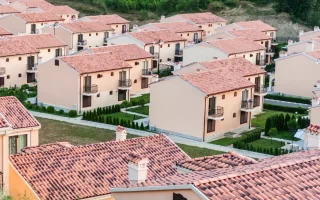
Every month, millions of seniors pay full price for electricity, water, gas, and internet—without realizing they may be eligible for discounts. These savings aren’t always advertised, and they’re often buried in the fine print of utility websites or tucked away in local assistance programs. But for retirees living on fixed incomes, these hidden perks can make a real difference. The challenge is knowing where to look—and how to ask.
Why So Many Discounts Go Unused
Utility companies and municipalities do offer senior discounts, but they don’t always make them easy to find. Some require annual applications, income verification, or proof of age. Others are only available through third-party programs or nonprofit partnerships.
Many seniors simply don’t know these options exist, and even those who do may be overwhelmed by the paperwork or confused by eligibility rules. As a result, thousands of dollars in potential savings go unclaimed every year.
Electric and Gas Bill Relief
Most states offer energy assistance programs for seniors, especially during the winter months. These include rate reductions, bill forgiveness plans, and weatherization services to improve home efficiency.
Programs like LIHEAP (Low Income Home Energy Assistance Program) provide federal funding, but many utility companies also have their own senior-specific discounts. Some offer reduced rates for customers over a certain age, while others provide budget billing plans that smooth out seasonal spikes.
You might also qualify for the Weatherization Assistance Program (WAP). This would provide you with funds that would perform home improvements to save money on energy. The key is to contact your provider directly and ask what’s available for seniors or low-income households.
Water and Sewer Discounts
Water utilities often have hardship programs or senior exemptions that reduce monthly bills or waive service fees. These programs may be tied to income, age, or disability status.
Some states will provide grant money for certain individuals. The funds can be used to:
- Extend service lines from a system to a residence.
- Connect service lines to a residence’s plumbing.
- Pay reasonable charges or fees for connecting to a system.
- Pay for the necessary installation of plumbing and related fixtures within dwellings lacking such facilities. This is limited to one bathtub, sink, commode, kitchen sink, water heater, and outside spigot.
- Construct and/or partition off a portion of the dwelling for a bathroom, not to exceed 4.6 square meters (48 square feet) in size.
- Pay reasonable costs for closing abandoned septic tanks and water wells when necessary to protect the health and safety of recipients of a grant.
- Make improvements to an individual’s residence when needed to allow the use of the water and/or waste disposal system.
In some cities, seniors can also apply for a “lifeline rate” that caps water usage charges or provides a flat monthly rate. Others offer leak forgiveness or plumbing repair assistance for older homeowners. Again, these benefits are rarely promoted—so it’s up to the customer to initiate the conversation.
Internet and Phone Savings
Staying connected is essential, but internet and phone bills can be a burden. Programs like the federal Affordable Connectivity Program (ACP) offer monthly discounts on broadband service for eligible seniors.
Some providers also offer senior-specific plans with lower rates, fewer fees, and no contracts. Lifeline, another federal program, provides a discount on phone service for qualifying individuals. These programs can be combined in some cases, offering even greater savings.
Property Tax and Utility Bundles
In some areas, seniors who qualify for property tax relief may also be eligible for bundled utility discounts. Local governments sometimes coordinate these programs, offering combined savings on trash collection, recycling, and stormwater fees.
These bundles are especially common in cities with high housing costs, where seniors are at risk of being priced out. Checking with your local tax assessor or city hall can uncover these lesser-known benefits.
How to Apply Without the Headache
Applying for utility discounts doesn’t have to be overwhelming. Start by calling your utility providers and asking if they offer senior or low-income discounts. Be prepared to provide proof of age, income, or residency.
If you’re unsure where to begin, contact your local Council on Aging or Area Agency on Aging—they often have staff who can walk you through the process or even help you apply. Some nonprofits also offer free benefits checkups to identify all the programs you may qualify for.
The Bottom Line: Ask, Apply, and Save
Utility discounts for seniors aren’t charity—they’re part of a broader effort to help older adults age in place with dignity. But these benefits only work if people know about them and take the time to apply. If you’re a senior or helping one, don’t assume you’re paying the lowest possible rate. A few phone calls and some paperwork could lead to hundreds of dollars in annual savings.
If you’ve uncovered a hidden utility discount, leave a comment—your tip might help someone else keep the lights on.
You May Also Like…
- Unplugged: 12 Items You Should Unplug Now To See A Drastic Change in Your Utility Bill
- 7 Reasons Your Utility Bill Credit Didn’t Arrive—and How to Reapply Before Deadlines
- 10 Weather-Proofing Fixes That Lower Insurance and Utility Bills
- The Ultimate Guide to Cutting Utility Bills Year-Round
- Should You Ever Add a Friend to Your Utility Bills?

Teri Monroe started her career in communications working for local government and nonprofits. Today, she is a freelance finance and lifestyle writer and small business owner. In her spare time, she loves golfing with her husband, taking her dog Milo on long walks, and playing pickleball with friends.






Comments